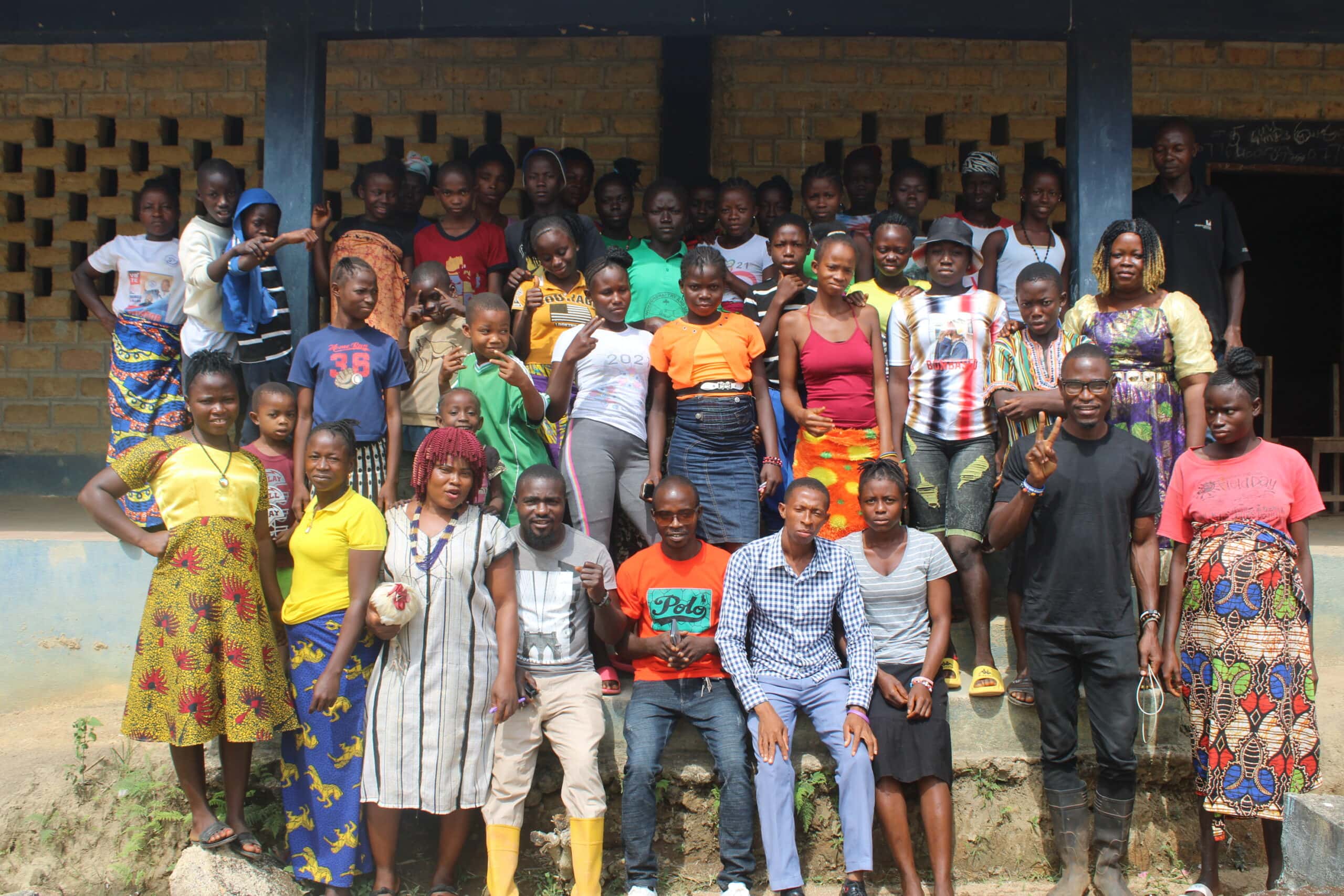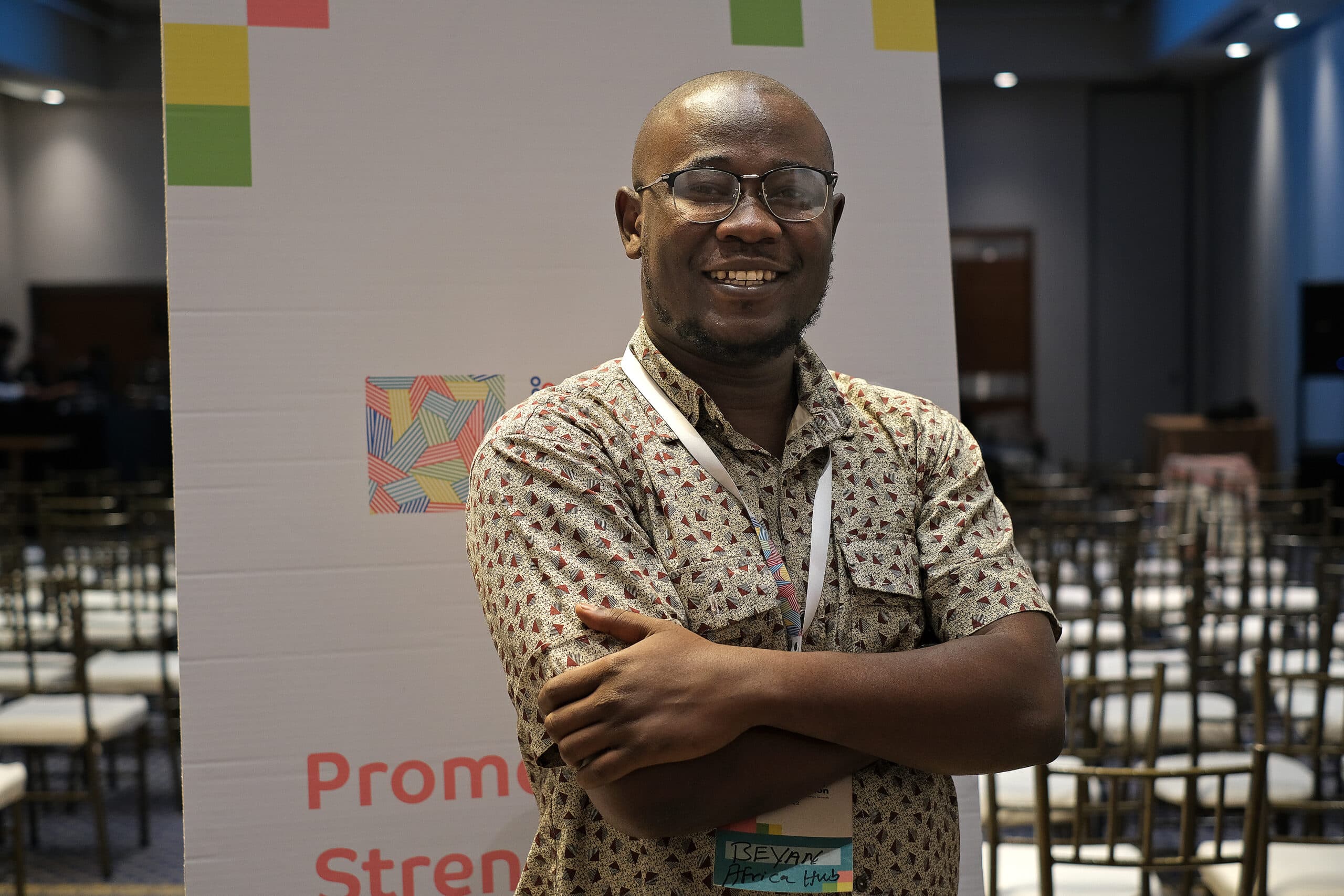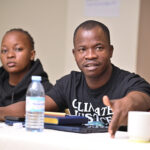Across the world, millions of young people lack access to economic opportunities. When young people are excluded from gainful and decent employment, unable to secure start-up capital for entrepreneurial endeavors, or cannot find training to learn new skills, it has a serious impact on their livelihoods and futures. Economic empowerment is key to building power and agency among young people—and it is a new pillar of our approach to children’s and youth rights work at the Fund.
YOCEL is a Fund grantee with an exciting approach to youth economic empowerment and education. As a social enterprise accelerator, they have trained and mentored hundreds of young entrepreneurs in Liberia. Through YOCEL’s programming, ambitious young people have received small seed grants, accessed networking opportunities, and learned more about government support for small and medium-sized enterprises.
“Too many young people lack basic access to economic opportunity,” says John Kabia, who directs the Fund’s Children and Youth Rights Program. “YOCEL inspires young people to become agents of change in their communities. They are transforming the realities of young people in Liberia.”

Founded in 2013, YOCEL is led entirely by young people themselves. This means they are acutely aware of the challenges facing youth in Liberia—including poverty, child marriage, and gender-based violence. Initially, YOCEL previously focused on education policy and research. They documented the issues facing young people and advocated for community-led solutions. Their Annual Youth Education Empowerment Summit, first hosted in 2016, has become an important space for young people from around the continent to gather and share knowledge.
Through YOCEL’s research, it became clear that young people in the region were particularly concerned about their livelihoods—especially after the effects of the COVID-19 pandemic. Economic, social, and cultural rights are an important way for children and young people to address the many challenges they face. For women and girls especially, access to economic opportunity is critical to overcoming issues like sexual violence, child marriage, and gender inequality.
Since 2021, YOCEL has expanded its work to include economic empowerment through skills training, networking, mentorship, and advocacy for a more youth-friendly employment and business environment. By mobilizing the entrepreneurial skills of young people, they are not only creating job opportunities but building youth agency and power. Through a multi-pronged strategy—including advocacy, data-driven market research, capacity building, and early education opportunities—YOCEL strives to foster a new generation of entrepreneurs, businesspeople, and leaders. Gender equity remains central to their approach; YOCEL offers a fellowship specifically to train and mentor young women and girls.

“As an entrepreneur myself, I have seen enough economic injustices and faced a series of barriers in growing my businesses; hence, leading an initiative such as YOCEL, I am intentional about equipping and nurturing the next generation of social entrepreneurs to create economic security and improve livelihood across Liberia, for them and their families,” said Beyan Flomo Pewee, the founder and chief executive officer of YOCEL.
The Fund, too, has recently adopted a new focus on enhancing livelihoods and addressing economic empowerment for children and young people. In a recent report, our Children’s and Youth Rights Program explains that “seeding experimental grants to resource economic empowerment and livelihoods programs” is an integral part of our 2022–27 strategy for advancing the rights of young people.
“Children and young people have repeatedly told us: to thrive, they must have access to economic opportunities,” says John Kabia. “By supporting the work of groups like YOCEL, we can help ensure that young people are in control of their futures.”
Sign up to our newsletter
Add some impact to your inbox.


